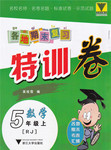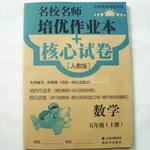题目内容
____ hands and knees Helen Thayer got the tent up.
A. In B. At C. With D. On
D
解析:
略

 各地期末复习特训卷系列答案
各地期末复习特训卷系列答案 小博士期末闯关100分系列答案
小博士期末闯关100分系列答案 名校名师培优作业本加核心试卷系列答案
名校名师培优作业本加核心试卷系列答案Congratulations! You have applied for a job and now you are getting ready for that important job interview and you are looking forward to making a good impression on your future (hopefully) boss. 
When you walk in the room the very first impression you make on the interviewer can have a great influence on the rest of the interview. It is important that you introduce yourself, shake hands, and are friendly. In a job interview, the first question is often a “breaking the ice” type of question. Don’t be surprised if the interviewer asks you something like: “How are you today?” or “What do you think of the weather lately?” Answer the question without going into too much detail.
Talking about qualifications (资历) is the most important part of any job interview. Your qualifications include your education and any special training you may have received in the past. Your qualifications also include your experience in any previous work. It is important to explain what experience you have in detail. Generally, employers want to know exactly what you did and how well you accomplished your tasks. This is not the time to be modest.
Try to avoid some big mistakes in the job interview, such as leaving the mobile on and criticizing previous bosses. The worst thing is you yourself have no questions. Having no questions shows you are either not interested or not prepared. Remember that interviewers are more impressed with the questions you ask than the selling points you try to make.
【小题1】The passage is mainly about .
| A.the typical questions asked in job interviews |
| B.importance of interviewees’ qualifications in job interviews |
| C.some common mistakes found in job interviews |
| D.Dos and Don’ts in job interviews |
| A.a question that makes people unhappy |
| B.an opening question asked to make people less nervous |
| C.a sharp question that makes people angry |
| D.a question asked about serious topic |
| A.educational background | B.social background |
| C.all kinds of special training received | D.experience in previous work |
| A.Leaving the mobile on | B.Criticizing previous bosses. |
| C.Having no questions. | D.Arriving late. |
A nine-year-old kid was sitting at his desk when suddenly there was a puddle(水潭、泥坑) between his feet and the front of his trousers was wet.He thought his heart was going to stop because he couldn't possibly imagine how this had happened.It had never happened before, and he knew that when the boys found out he would never hear the end of it. When the girls found out, they would never speak to him again as long as he lived.
He prayed this prayer, "Dear God, I need help now! Five minutes from now I'm dead meat!" He looked up from his prayer and here came the teacher with a look in her eyes that said he had been discovered.As the teacher was walking toward him, a classmate named Susie was carrying a goldfish bowl full of water.Susie tripped (绊倒) in front of the teacher and dumped (倒) the bowl of water in the boy's lap.The boy pretended to be angry, but all the while was saying to himself, "Thank you.Lord!"
Now all of a sudden, instead of being the object of ridicule, the boy was the object of sympathy.The teacher rushed him downstairs and gave him gym shorts to put on while his trousers dried out.All the other children were on their hands and knees cleaning up around his desk.The sympathy was wonderful.But as life would have it, the ridicule that should have been his had been transferred (转移) to someone else+—Susie.She tried to help, but they told her to get out.
When school was over, the boy walked over to Susie and whispered, "You did that on purpose, didn't you?" Susie whispered back, "I wet my trousers once, too!"
【小题1】The underlined sentence in Paragraph 1 means ____ .
A.the boys would never play with him
B.the boys would treat him as usual
C, he would hardly hear any praise from the boys
D.he would be laughed at by the.boys endlessly
【小题2】After Susie dumped water in his lap, the boy was in a state of ___ _.
| A.excitement | B.relief | C.anxiety | D.anger |
| A.They offered him dry clothes. |
| B.They laughed at the boy rudely, |
| C.They helped the boy do the cleaning. |
| D.They urged the boy to get out angrily, |
| A.The boy asked her to do so. |
| B.She just did it by accident. |
| C.The teacher tripped her on purpose. |
| D.She knew the boy's embarrassment. |
I was sleeping for over a week after a traffic accident. The only sounds that could be heard were coming from the machines that were 36 me alive.
All my family members were 37 ways to wake me up from my silence.
Greg, my brother – in – law, 38 to take some of my songs I had recently recorded to a local radio station, 39 he explained about my illness. He told them he was 40 I could hear what was going on around me and that he knew having my own songs 41 on the radio had been a huge dream of mine. This would definitely 42 me and do more than any medicine or machine could.
The radio station agreed to help and gave him a specific date and time 43 he could have a radio “ 44 ” at my hospital bed. Greg’s decision had filled everyone with 45 and now the moment arrived. Nervous from expectation, all my family members 46 hands and watched over me hoping for a 47 .
The DJ made a pre – song announcement about my 48 to the general audience, and then spoke directly to me.
“Shelly, this is for you. I want you to really listen now. This is not just 49 song we’re playing, but your family’s song of hope. All of us at KKDJ wish you a speedy 50 .”
|
Everyone in the room held their breath and watched 51 as the music began. Later they all witnessed the tears 52 down my pale cheeks. Though still not awake, it was obvious I heard my song.
Just a few days later, hope turned into 53 . I did in fact awake. Though not 54 unscathed (未受伤的), I did not suffer from the disabilities that had been predicted.
Hope is the part of us that makes us pick up the pieces and try again. 55 hope where would we be?
|
1. |
|
|
2. |
|
|
3. |
|
|
4. |
|
|
5. |
|
|
6. |
|
|
7. |
|
|
8. |
|
|
9. |
|
|
10. |
|
|
11. |
|
|
12. |
|
|
13. |
|
|
14. |
|
|
15. |
|
|
16. |
|
|
17. |
|
|
18. |
|
|
19. |
|
|
20. |
|